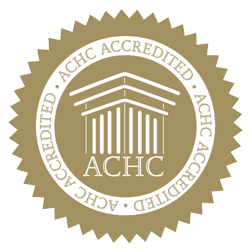Peritoneal Dialysis Treatment Coming Soon!
Written by: Vitality Dialysis

Chronic Kidney Disease (CKD) is a progressive condition that affects millions of people worldwide. Early detection and proper management are essential to slowing its progression. Stage 2 CKD is characterized by a mild decline in kidney function (eGFR 60-89) along with signs of kidney damage, such as protein in the urine. While symptoms may still be minimal or absent, identifying risk factors and making lifestyle changes at this stage can significantly impact long-term kidney health.
Understanding Stage 2 CKD
Stage 2 CKD indicates mild kidney damage with a slight reduction in kidney function. The kidneys are still able to filter waste effectively, but there may be subtle signs of impairment. The presence of protein in the urine, high blood pressure, or abnormalities detected through imaging or blood tests can indicate kidney stress. Since symptoms are often mild, regular screenings are crucial for at-risk individuals.
Symptoms and Early Indicators
Many people with Stage 2 CKD do not experience noticeable symptoms, making routine checkups essential for early detection. However, some individuals may experience:
- Increased urination, especially at night
- Slight swelling in the hands or feet
- Mild fatigue or general weakness
- High blood pressure, which can indicate kidney stress
Since symptoms can be vague or attributed to other conditions, it is important for individuals with risk factors to undergo regular kidney function tests.
Risk Factors and Causes
Several factors contribute to the development and progression of CKD. Addressing these risks early can help prevent further kidney damage.
Common Causes of Stage 2 CKD
- Diabetes: High blood sugar can damage kidney blood vessels, leading to decreased function over time.
- Hypertension (High Blood Pressure): Excessive pressure on kidney arteries can accelerate damage.
- Genetic Factors: A family history of kidney disease increases susceptibility.
- Autoimmune Diseases: Conditions like lupus can lead to chronic kidney inflammation.
- Frequent Kidney Infections: Recurrent infections may cause scarring and reduced function.
Lifestyle and Environmental Risk Factors
- Obesity: Being overweight raises the risk of diabetes and hypertension.
- Smoking: Reduces blood flow to the kidneys, worsening damage.
- High-Sodium Diets: Can contribute to high blood pressure and fluid retention.
- Overuse of NSAIDs: Long-term use of painkillers like ibuprofen can stress the kidneys.
Diagnostic Approaches
Early detection of Stage 2 CKD is crucial for preventing progression to more severe stages. Healthcare providers use various tests, including:
- Blood Tests: Measures creatinine levels to estimate eGFR.
- Urine Tests: Detects protein (albuminuria), a key marker of kidney damage.
- Blood Pressure Monitoring: Identifies hypertension, a leading CKD contributor.
- Imaging Studies: Ultrasounds or CT scans can reveal structural abnormalities.
Management and Prevention Strategies
Since kidney function is only mildly reduced in Stage 2 CKD, early intervention can help slow progression and preserve long-term kidney health.
Lifestyle Modifications
- Adopt a Kidney-Friendly Diet: Reduce sodium intake, eat lean proteins, and increase fruits and vegetables.
- Exercise Regularly: Helps regulate blood pressure, blood sugar, and body weight.
- Stay Hydrated: Drinking enough water supports kidney function and overall health.
- Quit Smoking: Eliminating tobacco use can improve circulation and kidney health.

Medical Management
- Control Blood Pressure: Maintain levels below 130/80 mmHg with medication and diet.
- Monitor Blood Sugar: Keep diabetes under control to reduce kidney stress.
- Regular Checkups: Ensure early detection of any worsening conditions.
Patient Empowerment and Resources
Managing Stage 2 CKD requires an active role in health decisions. Support groups, nutritional counseling, and educational resources can help individuals stay informed and take control of their kidney health.
Embrace Independence with Home Dialysis
If you have been diagnosed with Stage 2 CKD or have risk factors such as diabetes or high blood pressure, now is the time to take proactive steps. Vitality Dialysis is here to support you with expert guidance, lifestyle recommendations, and home dialysis options if needed in the future. Contact us today to learn how we can help you maintain kidney health and improve your quality of life.
© Copyright 2024 | Vitality Dialysis Privacy Policy |
Website imagined and executed by RivalMind.
Contact






